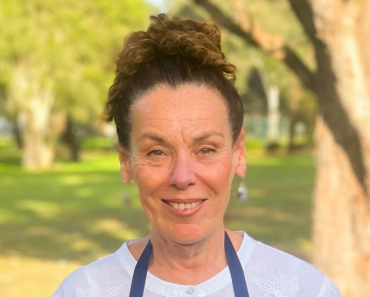I was back on the roof late in August, patching above a carriage-house apartment my wife and I rent out. She does most of the work relating to the Airbnb, frankly. But roof repair? That falls to me and this past winter, shoveling slush and snow, I thought of Richard Slotkin, who taught American history and literature at the fancy liberal arts college I attended during the 1980s.
My education was expensive. It had cachet. Yet Dr. Slotkin and his colleagues failed to teach me a single thing about roofing. My liberal arts degree did not prepare me in any direct way to start or administer the businesses I own and operate today. I’m a journalist by trade, yet not a single class covered how to write a news story, or do my accounting, or schmooze potential clients, or assess the opportunity in Vietnam sod farms.
And yet you’ll never hear my voice in the chorus of naysayers who continually question the value of a liberal arts education. Because that double major in ancient Greek history and Modern American literature taught me how to think. It also instilled in me the ambition to learn new things, including roofing.
There was one vaguely relevant college class I did take at Wesleyan University in Middletown, Connecticut: “New Journalism and the Non-Fiction Novel.” Otherwise, I worked on the school newspaper, scrounged up a cub reporting position upon graduation, and learned on the job. As it happened, working as a reporter, then an editor, led to many more opportunities in my revenue-producing life, each one different, completely unanticipated and requiring a new learning curve unto itself.
Today higher education finds itself under what appears to be continual siege — in terms of expense, its attempts at diversity, for the way it handles on-campus political expression. What’s more, many critics of the liberal arts, what some call a “classical” education, are coming from inside the house. Others believe we need more young people learning trades, so as to better meet “workforce needs.” Anyone who has tried to find a plumber these days is nodding their head right now.
Yet I contend that the brand of liberal arts education on offer at Wesleyan and Bates and Bowdoin continue to effectively shape and benefit young brains. It certainly met my needs, and those of countless others I know personally, by instilling in us the ability and ambition to learn the next thing. In many ways, these college curricula taught us how to think, which is, in fact, the same thing established tradesmen and women do when they educate young apprentices.
The problems come when students seek higher education that would appear to deliver the most money immediately and forever. Because the working world doesn’t work that way.
• • •
The germ of this column was born nearly a year ago when yet another college professor publicly bemoaned grave threats to the liberal arts she teaches (“Stop Corporatizing my Students”). Then I came upon another academic who couldn’t even articulate what it is she was defending (“I Teach the Humanities, and I Still Don’t Know What Their Value Is“).
Let me help: First, college students aren’t being corporatized. They’re being vocationalized and they’re largely self-selecting. Students seek value for money; in 2024, most tuition-paying parents also want evidence of that value, up front. They all seek assurance that this costly education will result in meaningful employment and remuneration, ASAP.
What folks today are not grasping is this: While a liberal arts course of study does not guarantee a specific stretch or type of employment, it does nothing less than prepare callow youths for multiple jobs of nearly infinite variety, throughout one’s life. That’s one reason these diverse “classical” degrees have been around for centuries.
At 60, I’ve been reading these hand-wringing opinion pieces pretty much since the day, in 1986, when I took my humanities degrees into the workforce. I can honestly report that my undergraduate education has served me extraordinarily well. It taught me how to think critically, how (and when) to articulate and defend my opinions and assertions, how (and when) to dissect those of others, the value in being curious, and how to develop new skills that had absolutely nothing to do with Xenephon or American cultural notions of the frontier — though that information is great at parties. Okay, some parties…
The fact that today I’m not teaching Greek history at a college somewhere misses the point. I’ve worked as a reporter, editor and public relations executive through a period of unimaginable upheaval in the media sector. I’ve done a dizzying amount of sales. Without a finance degree or MBA, I’ve participated in starting and operating four companies, including a tech start-up and, yes, a sod-production LLC based in Southeast Asia. Am I filthy rich? Nope. But I put two kids through college and my wife by choice stayed home with them. I could go on. No one starved.
I could also point to dozens of peers, all similarly educated, whose experiences have proved no less diverse and successful — often far more successful, from a revenue standpoint. If I had a dime, or some 1992 Apple stock, for every art history or East Asian Studies major I know who made small fortunes in various arcane business arenas . . .
The point is, when the time came, we products of the liberal arts vocationalized ourselves as members of the workforce, serially, according to need, preference, circumstance, opportunity and our willingness/ability to shift gears. We did so because our psychology and sociology degrees taught us how to absorb and act on new information. They developed in us the ability to synthesize and communicate that information. At 40, I started playing music. Had I taken a more specific, vocational degree, would I have been able to do something like that, so late in life? Better question: Would I have even tried?
• • •
I understand the impulse to leverage a university degree as a form of job training. Perhaps relatedly, I’ve also noticed an aversion among younger millennials and Gen Z folk toward apprenticeship — the idea that you basically spend your 20s workshopping a particular job experience, before settling on a career and making serious money.
I know dozens of people who’ve made a ton of money in this world. I know dozens more who haven’t. But most of my 50- and 60-something peers had very little expectation of making any appreciable cash right out of college.
Perhaps we can make a connection here: Very few students, vocationalized or otherwise, emerge from university fully formed or big-revenue worthy. The Great Sam Cooke was right: Change is gonna come. Anyone of my vintage has multiple friends who went to school for some specific, vocational purpose, only to discover — at 40-plus years of age — that they had come to despise that work. I know a dozen more whose prescriptive educations and earning power were rendered obsolete by technological advance.
In life, there are no guarantees. In fact, you can bank on radically changing course multiple times. Your best defense is to learn how to think, how to welcome the shifting of employment gears. Because that narrow undergraduate degree you undertook at 18 — for the expected revenue, when you knew so little about the world, and yourself — won’t help you start over at 45. Whereas mine has never stopped helping me.
And I’ve got news for those contemplating the trades: Go for it, but you’ll need to think creatively and learn new things in those fields, too. All of them. The pace of technology alone demands it.
Last spring, my boiler failed. The young HVAC professional we retained had no experience with the appropriate replacement system. Yet his training and curiosity enabled him to work through it — then adapt the whole enterprise (including the app we use to control its every nuance!) to the idiosyncratic physical realities of my 1850 home.
In August, a few weeks before I turned 60, I was back on the roof — fixing the hole where the rain gets in. It didn’t stop my mind from wandering. On the contrary, I again recalled Dr. Slotkin, along with another honored teacher: the young roofer who’d advised me on how to clean and seal my problem spot. We are continually educating ourselves, so that we might tackle a number of things that weren’t important yesterday. Lifelong learning isn’t a catch phrase. It’s what anyone must do in order to survive late capitalism. However you choose to educate yourself, do so with that in mind.
Hal Phillips of Auburn has been a working journalist since 1986, and managing director of Mandarin Media, Inc. since 1997. His first book, Generation Zero: Founding Fathers, Hidden Histories & The Making of Soccer in America, was published in 2022. Rowman & Littlefield will publish his next effort in 2026. He can be reached at onintwo@maine.rr.com.







